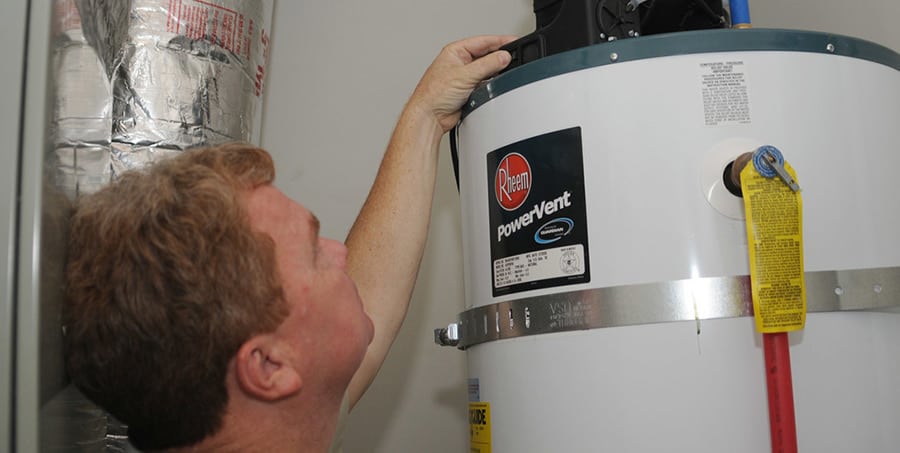Handling the Everyday Heater Urgent Problems
Handling the Everyday Heater Urgent Problems
Blog Article
This great article which follows involving Warning Signs You Need Water Heater Repairs is unquestionably interesting. Try it and draw your own personal conclusions.

A hot water heater is one of the most crucial fundamental appliances that can be located in a house. With hot water heater, you do not need to undergo the stress of heating water by hand each time there is a demand to take a bath, do the laundry, or the dishes. Nevertheless, there is constantly an opportunity that your hot water heater would certainly break down similar to many mechanical devices.
It is very important to keep in mind any kind of little malfunction and also tackle it quickly prior to points leave hand. The majority of times, your hot water heater begins to malfunction when there is a build-up of debris as a result of constant use. As a preventative measure, routine flushing of your hot water heater is advised to prevent debris buildup and also avoid practical failing.
Typical water heater emergency situations as well as how to handle them
Leaky hot water heater tank.
In this scenario, you must turn off your water heater, allow it to cool down, and also very carefully look for the source of the trouble. At times, all you require to do is to tighten a few screws or pipeline links in situations of small leaks. If this does not work and the leakage persists, you may need to use the services of a professional for a suitable replacement.
Changing water temperature level.
Your water heater might start creating water of various temperature levels usually ice scalding or cold hot. In this scenario, the first thing you do is to ensure that the temperature level is set to the wanted level. If after doing this, the water temperature level keeps changing during showers or various other tasks, you may have a faulty thermostat. There may be a need to replace either the thermostat or the heating system of your hot water heater.
Inadequate hot water
It may be that the water heating system can not support the warm water need for your apartment. You can upgrade your water heater to one with a larger capability.
Tarnished or stinky water
When this happens, you need to recognize if the problem is from the container or the water source. If there is no amusing odor when you run cold water, after that you are certain that it is your water heating system that is malfunctioning. The stinky water can be triggered by rust or the build-up of microorganisms or sediments in the water heating unit storage tank.
Conclusion
Some house owners disregard little warning and also minor faults in their water heater system. This only causes additional damage and also a possible full break down of your home appliance. You should handle your water heater faults as quickly as they come near stay clear of even more costs as well as unnecessary emergency problems.
With water heaters, you don't require to go via the tension of heating water by hand every time there is a need to take a bathroom, do the laundry, or the recipes. Your water heater might start creating water of various temperature levels usually ice cool or scalding warm. It might be that the water heating unit can not sustain the hot water demand for your apartment. If there is no funny odor when you run cold water, then you are specific that it is your water heating system that is damaged. The odiferous water can be created by corrosion or the buildup of microorganisms or sediments in the water heating system tank.
Common Water Heater Issues and What You Should Do
What Type of Water Heater Do You Have?
Before we begin it’s first important that you identify the type of water heater you have on your property. There are two main types of water heaters out there: conventional and high efficiency.
Both of these types of products typically use either gas or electricity to heat power. There are also solar water heaters that use a thermal collector on the roof or yard to heat the water.
While these models are not as common, they can cut heating costs in half. In this article, we will focus on conventional and high efficiency.
How Do My Electric and Gas Water Heater Work?
Though they look similar, electric and gas water heaters work very differently. It’s important to know their basic function because often problems can be specific to the heating source.
In the electric model, a thermostat on the side of the machine detects the temperature of the water in the tank. When the temperature needs to rise electricity flows to a heating element suspended in the water.
Gas models also use a thermostat device — typically with a mercury sensor at the tip and an additional sensor called a thermocouple. The thermocouple detects whether the pilot light is on and controls the flow of gas.
When the thermostat drops below the appropriate level gas is released which becomes ignited by the pilot light. The flame heats the bottom of the water tank which causes hot water to rise and cold water to drop.
This natural circulation continues until the water reaches the desired temperature. Then, the thermostat triggers the gas control valve to shut off the flow of gas.
What Are the Most Common Issues and How Do You Fix Them?
https://happyhiller.com/blog/common-water-heater-issues-and-what-you-should-do/

I'm very involved in Common Hot Water Heater Problems and I hope you enjoyed the piece. Kindly take the opportunity to promote this blog if you liked it. I treasure reading our article about Is Your Water Heater Leaking?.
Solve now, call! Report this page